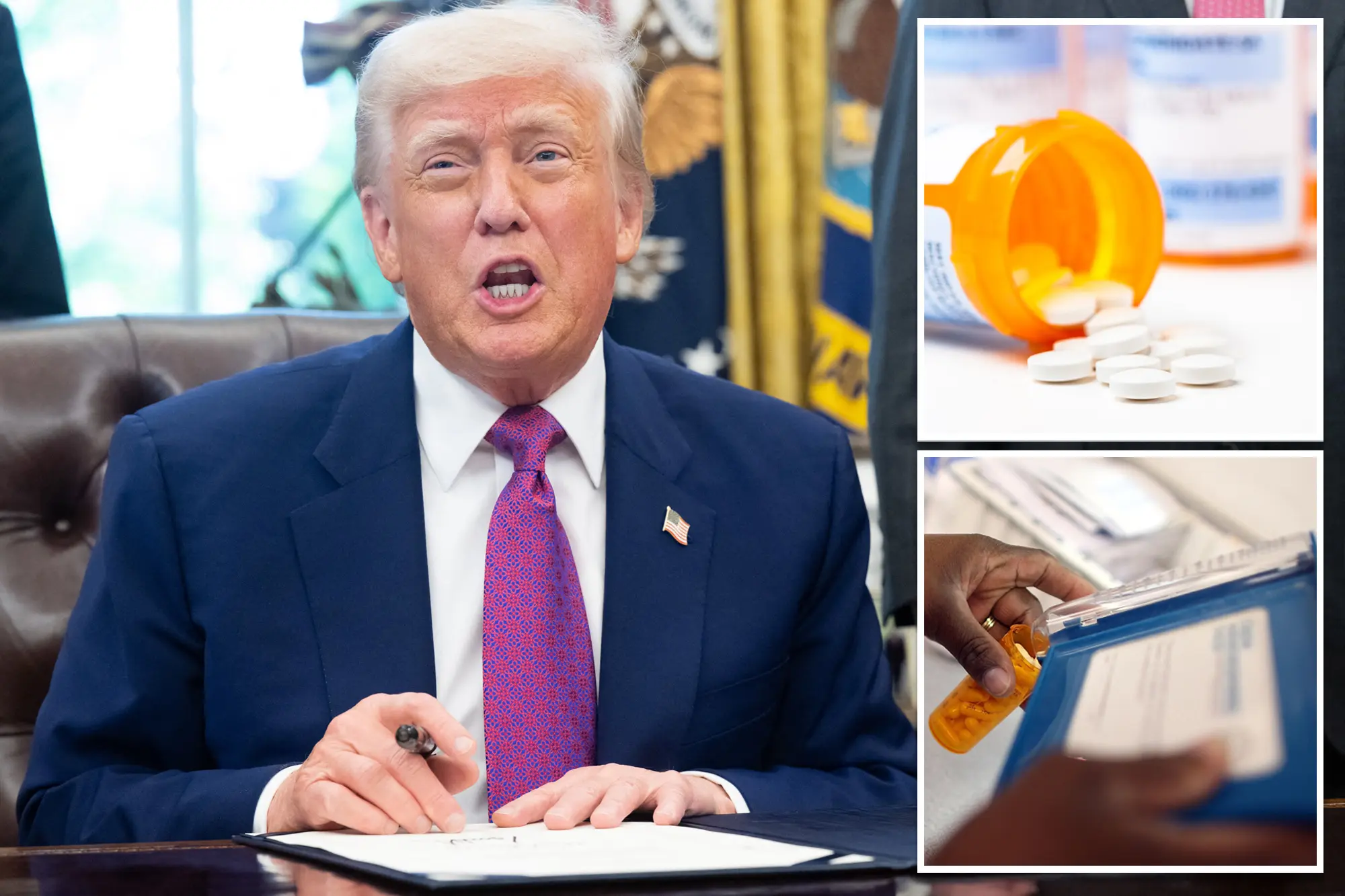
Trump Threatens Federal Limits Unless Drugmakers Cut Prices Within 30 Days
Trump issues an executive order requiring pharmaceutical companies to reduce their prices within 30 days or risk having their pricing capped at lower international benchmarks.
A comprehensive executive order signed by President Donald Trump on Monday gives pharmaceutical companies 30 days to reduce the price of prescription drugs in the US or face stringent new restrictions on the amount the federal government will pay for drugs covered by Medicare and Medicaid.
Under the direction of Robert F. Kennedy Jr., the Department of Health and Human Services is required to bargain with pharmaceutical companies for new prices. A new pricing law that links US medication prices to those paid by other nations, many of which pay significantly less, will automatically go into force if an agreement is not reached within the allotted 30-day period.
During a White House press conference, Trump declared, “We’re going to equalize.” “Everyone will pay the same amount. We will pay the same as Europe does.
The proposal is the most recent iteration of Trump’s divisive “most favored nation” strategy, which he initially tried while in office. According to the new plan, Medicare and Medicaid would start paying the lowest prescription drug prices found in other industrialized countries if negotiations fail. Trump says this will save taxpayers “TRILLIONS OF DOLLARS.”
Although the plan has the potential to drastically alter federal drug spending, it is unclear how it would affect the tens of millions of Americans who have private health insurance in the short term. Because it spends money on Medicaid, which serves around 80 million low-income and disabled people, and Medicare, which covers almost 70 million older Americans, the federal government has the largest influence over drug pricing.
The order was swiftly resisted by the pharmaceutical sector. Pharmaceutical Research and Manufacturers of America (PhRMA) president and CEO Stephen J. Ubl cautioned that linking US prescription costs to international standards may discourage innovation investment and increase dependency on foreign suppliers.
In a statement, Ubl claimed that importing overseas prices would cost Medicare billions of dollars without providing any assurance that it would benefit patients or increase their access to medications. “It puts at risk the hundreds of billions of dollars that our member companies intend to invest in the United States.”
The presidential order from 2025 is reminiscent to Trump’s 2020 attempt to control the price of drugs in the United States, which was blocked by the Biden administration after facing legal challenges. Drug manufacturers contended at the time that the strategy would give foreign governments the authority to decide how much a medicine was worth in the US.
Trump remained steadfast in his criticism of pharmaceutical corporations on Monday, accusing them of exploiting research and development as an excuse to justify exorbitant costs while making disproportionate profits off of American customers.
“America is where the pharmaceutical companies make the majority of their profits,” he stated. “That’s not a pleasant thing.”
Trump displayed a strong posture while flanked by important administration figures such as Kennedy, NIH Director Jay Bhattacharya, FDA Commissioner Dr. Marty Makary, and Medicare chief Dr. Mehmet Oz. In an attempt to lower prices, he suggested increasing drug imports from outside and vowed to look into business practices.
In the upcoming weeks, the government will meet with pharmaceutical CEOs to suggest pricing modifications based on global standards, according to Dr. Oz. He did concede, however, that the department had little power to affect costs for people with private insurance.
Congress passed a law in 2022 that gave Medicare the power to negotiate drug costs for a limited range of medications beginning in 2026. Drugmakers vehemently opposed the measure and filed an unsuccessful lawsuit to halt it.
Congress has historically failed to enact substantial reform, despite bipartisan dissatisfaction over America’s world-leading medication prices. Trump, who ran on a platform of stopping “pharmaceutical robbery,” once again attacked industry lobbying and campaign contributions, claiming that reform is long overdue.
Trump posted on social media on Sunday, saying, “The American people have been suckers for far too long.” “We will act in the proper manner.”
All Categories
Recent Posts
Tags
+13162306000
zoneyetu@yahoo.com



